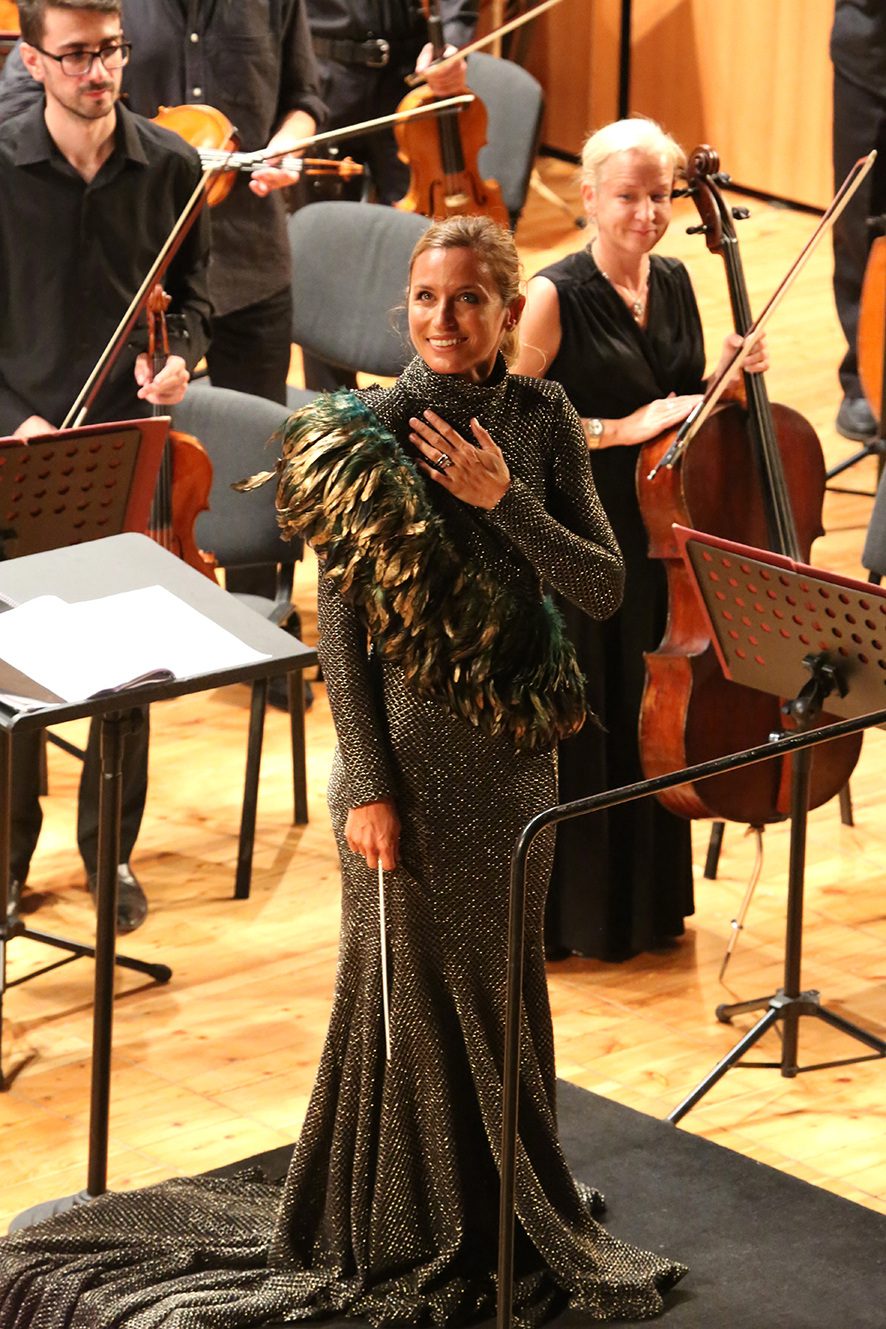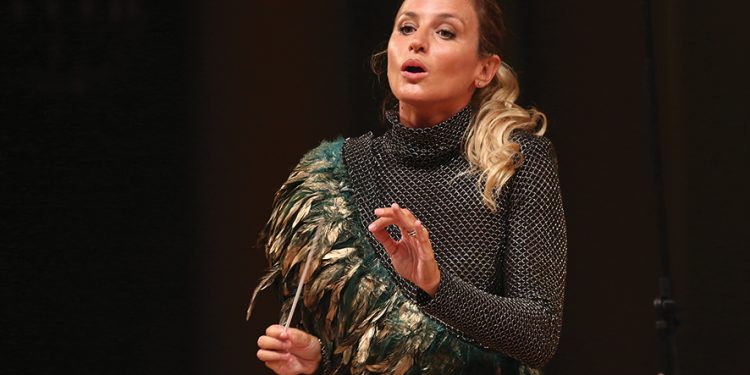In a dazzling display of musical talent and cultural exchange, Italian conductor Beatrice Venezi has brought her exceptional artistry to Georgia as part of the renowned “Night Serenades” festival. Founded in 1982 by the celebrated Georgian violinist Liana Isakadze with the support of the Italian Embassy in Georgia, this international music festival has been a significant cultural event, and Venezi’s participation underscores its continued prominence.
The “Night Serenades” festival, which has become a cornerstone of Georgia’s cultural landscape, has recently featured a series of remarkable concerts. Following two impressive performances in Batumi and Borjomi by the esteemed Italian accordionist Mario Stefano Pietrodarchi, the festival’s grand finale was held at the Tbilisi State Conservatoire, with Beatrice Venezi as the centerpiece of the event.
Beatrice Venezi’s career is a testament to her exceptional talent and influence in the world of classical music. With a background in piano, composition, and conducting from the Milan Conservatory of Music “Giuseppe Verdi,” she has held prominent positions, including Advisor to the Italian Minister of Culture for Music and Artistic Director of the Taormina Arte Foundation at the Ancient Theatre of Taormina. Her previous roles also include Principal Guest Conductor of the Orchestra della Toscana, Principal Conductor of the Orchestra Milano Classica, and Principal Conductor of the Orchestra Scarlatti Young. Her involvement as Principal Guest Conductor of the Puccini Festival in Torre del Lago further highlights her esteemed position in the classical music arena.
Venezi’s global reach includes collaborations with prestigious orchestras such as the Orchestra del Teatro La Fenice, the Orchestra del Maggio Musicale Fiorentino, and the New Japan Philharmonic. Her extensive performance history, comprising over 160 symphony concerts and 50 opera performances, underscores her versatility and dedication.

Reflecting on her role in the “Night Serenades” festival, Venezi noted the unique challenges and opportunities of performing in different cultural contexts. “Yes, it can be quite a challenge because there are so many differences related to musical culture. The way of performing certain pieces and the taste for certain music can vary widely,” she observed. Despite these challenges, she expressed her enthusiasm for sharing Italian music with Georgian audiences. “I’m very happy to bring Italian music here,” she added, highlighting the importance of cultural exchange and her role in bridging musical traditions.
A significant aspect of Venezi’s work is her commitment to advancing female leadership in the arts. She remarked, “When we talk about leadership, we often think of a man. This happens in many countries, including Italy. It was surprising to me because Italy is in the heart of Europe. There are significant differences between Southern and Northern Europe.” Her advocacy for gender equality is reflected in her preference for using the term “conductor,” which she views as a gender-neutral designation. “I want the role to be defined by skill and not by gender,” she explained, emphasizing her belief in merit-based recognition.
Venezi’s innovative approach to classical music includes a focus on blending different musical styles to attract new audiences. She believes that integrating classical music with genres such as jazz or soundtracks can rejuvenate interest in the genre and engage a broader audience. “Classical music is sometimes perceived as boring or outdated, but we need to open our minds and explore how to attract new audiences to this genre. Mixing classical music with other styles can be beneficial and help engage new listeners,” she said.
Her experience in Georgia, particularly at the Tbilisi State Conservatoire, has been marked by warm hospitality and enthusiastic audiences. Reflecting on her time in Tbilisi, Venezi shared, “The hospitality has been great, and the audience is very warm. I really enjoy Tbilisi. I remember my first visit in 2016 or 2017 when I performed at the Opera House. I had the chance to explore and experience the beauty of the country. I always look forward to coming back here, as I feel at home.” Her fondness for Georgia highlights the meaningful connections she has made and the cultural richness she has encountered.














